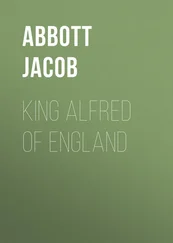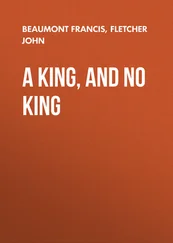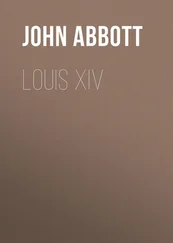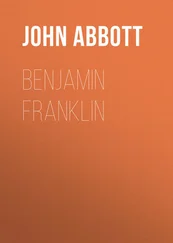John Abbott - King Philip
Здесь есть возможность читать онлайн «John Abbott - King Philip» — ознакомительный отрывок электронной книги совершенно бесплатно, а после прочтения отрывка купить полную версию. В некоторых случаях можно слушать аудио, скачать через торрент в формате fb2 и присутствует краткое содержание. ISBN: , Жанр: foreign_antique, foreign_prose, Историческая проза, на английском языке. Описание произведения, (предисловие) а так же отзывы посетителей доступны на портале библиотеки ЛибКат.
- Название:King Philip
- Автор:
- Жанр:
- Год:неизвестен
- ISBN:http://www.gutenberg.org/ebooks/29494
- Рейтинг книги:3 / 5. Голосов: 1
-
Избранное:Добавить в избранное
- Отзывы:
-
Ваша оценка:
- 60
- 1
- 2
- 3
- 4
- 5
King Philip: краткое содержание, описание и аннотация
Предлагаем к чтению аннотацию, описание, краткое содержание или предисловие (зависит от того, что написал сам автор книги «King Philip»). Если вы не нашли необходимую информацию о книге — напишите в комментариях, мы постараемся отыскать её.
King Philip — читать онлайн ознакомительный отрывок
Ниже представлен текст книги, разбитый по страницам. Система сохранения места последней прочитанной страницы, позволяет с удобством читать онлайн бесплатно книгу «King Philip», без необходимости каждый раз заново искать на чём Вы остановились. Поставьте закладку, и сможете в любой момент перейти на страницу, на которой закончили чтение.
Интервал:
Закладка:
Hobbomak.
Hobbomak, who had embraced Christianity, and was apparently a consistent Christian, was greatly beloved by Massasoit. The honest Indian, when he heard the tidings of his chieftain's death, bitterly deplored his loss.
"My loving sachem! my loving sachem!" he exclaimed; "many have I known, but never any like thee."
Then turning to Mr. Winslow, he added, "While you live you will never see his like among the Indians. He was no deceiver, nor bloody, nor cruel, like the other Indians. He never cherished a spirit of revenge, and was easily reconciled to those who had offended him. He was ever ready to listen to the advice of others, and governed his people by wisdom and without severity."
Hospitality of Corbitant's wife.
Arrival at Mount Hope.
When they arrived at Corbitant's house they found the sachem not at home. His wife, however, treated them with great kindness, and informed them that Massasoit was still alive, though at the point of death. They therefore hastened on to Mount Hope. Mr. Winslow gives the following account of the scene witnessed at the bedside of the sick monarch:
Massasoit's welcome.
"When we arrived thither, we found the house so full that we could scarce get in, though they used their best diligence to make way for us. They were in the midst of their charms for him, making such a fiendlike noise that it distempered us who were well, and therefore was unlike to ease him that was sick. About him were six or eight women, who chafed his arms, legs, and thighs, to keep heat in him. When they had made an end of their charming, one told him that his friends the English were come to see him. Having understanding left, but his sight was wholly gone, he asked who was come . They told him Winsnow , for they can not pronounce the letter l , but ordinarily n in the place thereof. He desired to speak with me. When I came to him, and they told him of it, he put forth his hand to me, which I took. Then he said twice, though very inwardly, Keen Winsnow? which is to say, Art thou Winslow? I answered Ahhe , that is, yes . Then he doubled these words: Matta neen wonckanet namen Winsnow; that is to say, O Winslow, I shall never see thee again! "
His recovery.
Kindness of the Pilgrims.
Mr. Winslow as physician.
Mr. Winslow immediately prepared some refreshing broth for the sick man, and, by careful nursing, to the astonishment of all, he recovered. Massasoit appeared to be exceedingly grateful for this kindness, and ever after attributed his recovery to the skill and attentions of his English friends. His unquestionable sincerity won the confidence of the English, and they became more fully convinced of his real worth than ever before. Mr. Winslow wished for a chicken to make some broth. An Indian immediately set out, at two o'clock at night, for a run of forty miles through the wilderness to Plymouth. In a surprisingly short time, he returned with two live chickens. Massasoit was so much pleased with the fowls – animals which he had never seen before – that he would not allow them to be killed, but kept them as pets. The kind-hearted yet imperial old chieftain manifested great solicitude for the welfare of his people. He entreated Mr. Winslow to visit all his villages, that he might relieve the sick and the suffering who were in them. Mr. Winslow remained several days, and his fame as a physician spread so rapidly that great crowds gathered in an encampment around Mount Hope to gain relief from a thousand nameless ills. Some came from the distance of more than a hundred miles.
Alarming tidings.
While at Mount Hope, Massasoit informed Mr. Winslow that Wittuwamet, a sachem of one of the Massachusetts tribes of Indians near Weymouth, and several other Indian chiefs, had formed a plot for the purpose of cutting off the two English colonies. Massasoit stated that he had been often urged to join in the conspiracy, but had always refused to do so, and that he had done every thing in his power to prevent it. Mr. Winslow very anxiously inquired into all the particulars, and ascertained that the Weymouth men had so thoroughly aroused the contempt as well as the indignation of the neighboring Indians, that their total massacre was resolved upon. The Indians, however, both respected and feared the colonists at Plymouth; and, apprehensive that they might avenge the slaughter of their countrymen, it was resolved, by a sudden and treacherous assault, to overwhelm them also, so that not a single Englishman should remain to tell the tale.
The party leave Mount Hope.
With these alarming tidings, Mr. Winslow, with Mr. Hampden and Hobbomak, left Mount Hope on his return. Corbitant, their outwardly-reconciled enemy, accompanied them as far as his house in what is now Swanzey.
Conversation with Corbitant.
"That night," writes Mr. Winslow, "through the earnest request of Corbitant, we lodged with him at Mattapoiset. On the way I had much conference with him, so likewise at his house, he being a notable politician, yet full of merry jests and squibs, and never better pleased than when the like are returned upon him. Among other things, he asked me that, if he were thus dangerously sick, as Massasoit had been, and should send to Plymouth for medicine, whether the governor would send it; and if he would, whether I would come therewith to him. To both which I answered yes; whereat he gave me many joyful thanks."
"I am surprised," said Corbitant, after a moment's thought, "that two Englishmen should dare to venture so far into our country alone. Are you not afraid?"
"Where there is true love," Mr. Winslow replied, "there is no fear."
"But if your love be such," said the wily Indian, "and bear such fruit, how happens it that when we come to Plymouth, you stand upon your guard, with the mouth of your pieces pointed toward us?"
English salutations.
"This," replied Mr. Winslow, "is a mark of respect. It is our custom to receive our best friends in this manner."
Corbitant shook his head, and said, "I do not like such salutations."
Theological remarks.
Observing that Mr. Winslow, before eating, implored a blessing, Corbitant desired to know what it meant. Mr. Winslow endeavored to explain to him some of the primary truths of revealed religion, and repeated to him the Ten Commandments. Corbitant listened to them very attentively, and said that he liked them all except the seventh. "It must be very inconvenient," he said, "for a man to be tied all his life to one woman, whether she pleases him or not."
As Mr. Winslow continued his remarks upon the goodness of God, and the gratitude he should receive from us, Corbitant added, "I believe almost as you do. The being whom you call God we call Kichtan."
Return to Plymouth.
Mr. Winslow and his companions passed a very pleasant night in the Indian dwelling, receiving the most hospitable entertainment. The next morning they hastened on their way to Plymouth. They immediately informed the governor of the alarming tidings they had heard respecting the conspiracy, and a council of all the men in the colony was convened. It was unanimously decided that action, prompt, vigorous, and decisive, was necessary.
The army.
Captain Standish.
The bold Captain Standish was immediately placed in command of an army of eight men to proceed to Weymouth. He embarked his force in a squadron of one boat , to set sail for Massachusetts – for Massachusetts and Plymouth were then distinct colonies. The captain was an intrepid, impulsive man, who rarely took counsel of prudence. He would wrong no man, and, let the consequences be what they might, he would submit to wrong from no man. The Pilgrims valued him highly, and yet so deeply regretted his fiery temperament that they were unwilling to receive him to the communion of the Church.
Читать дальшеИнтервал:
Закладка:
Похожие книги на «King Philip»
Представляем Вашему вниманию похожие книги на «King Philip» списком для выбора. Мы отобрали схожую по названию и смыслу литературу в надежде предоставить читателям больше вариантов отыскать новые, интересные, ещё непрочитанные произведения.
Обсуждение, отзывы о книге «King Philip» и просто собственные мнения читателей. Оставьте ваши комментарии, напишите, что Вы думаете о произведении, его смысле или главных героях. Укажите что конкретно понравилось, а что нет, и почему Вы так считаете.












